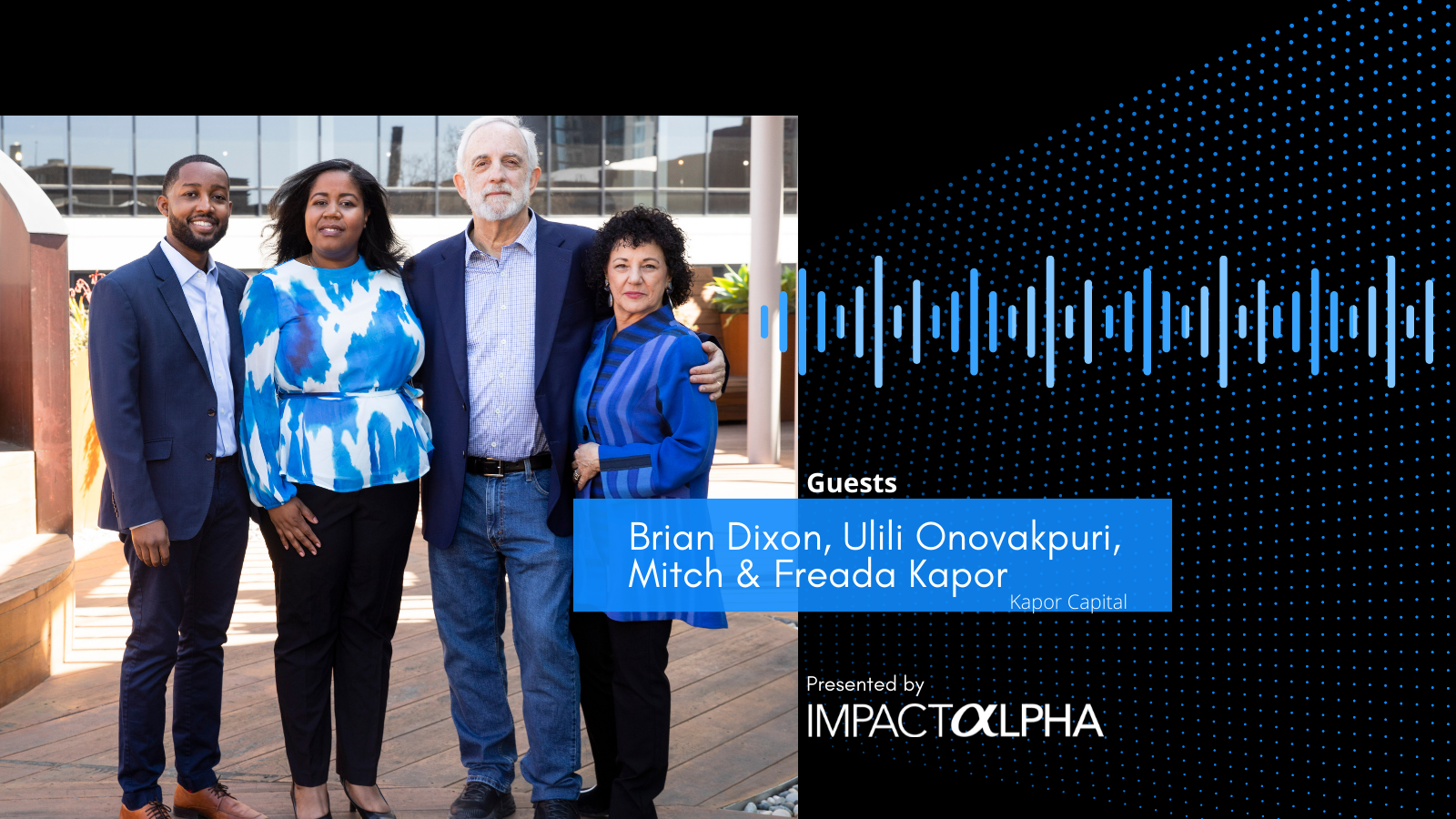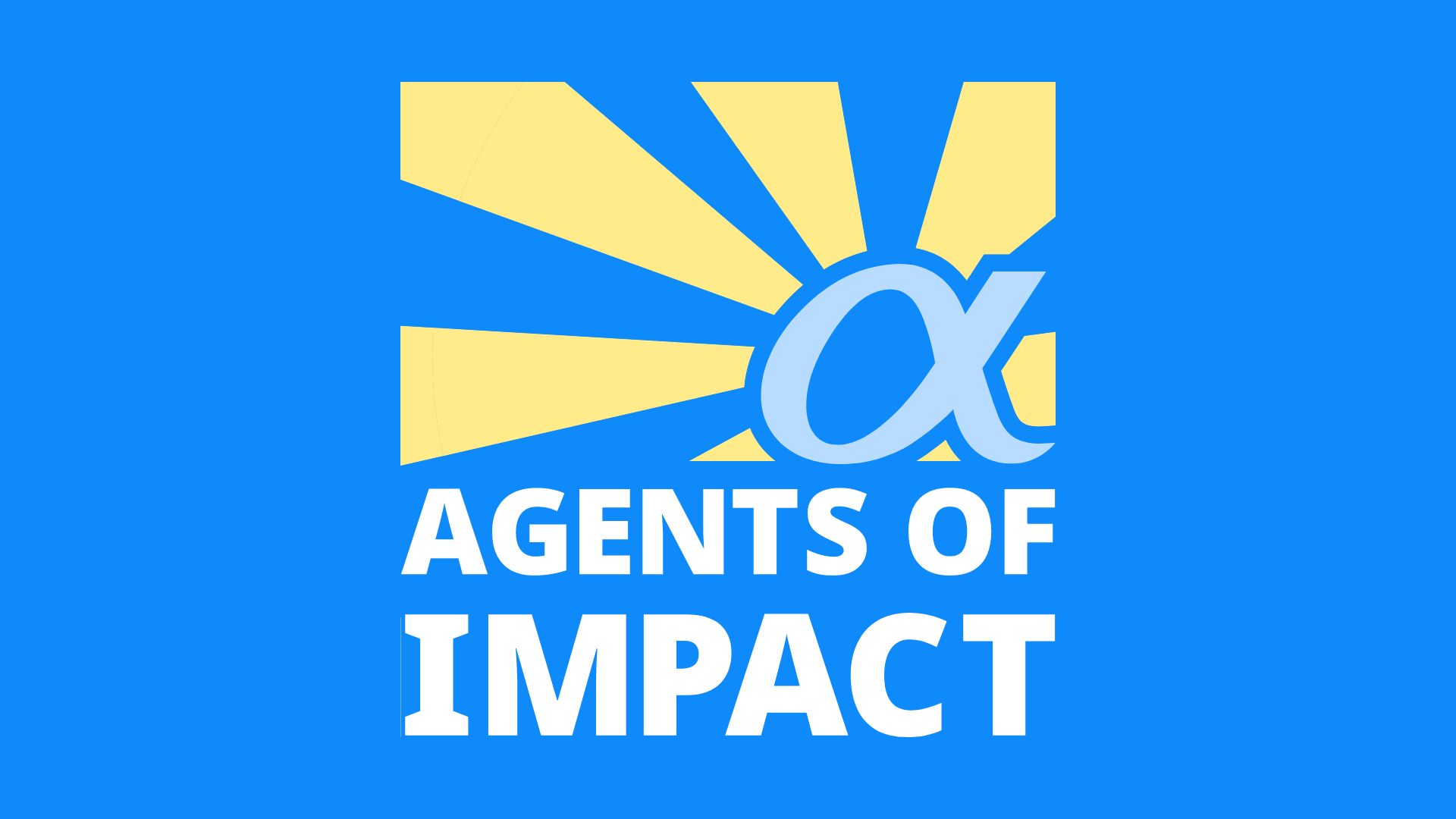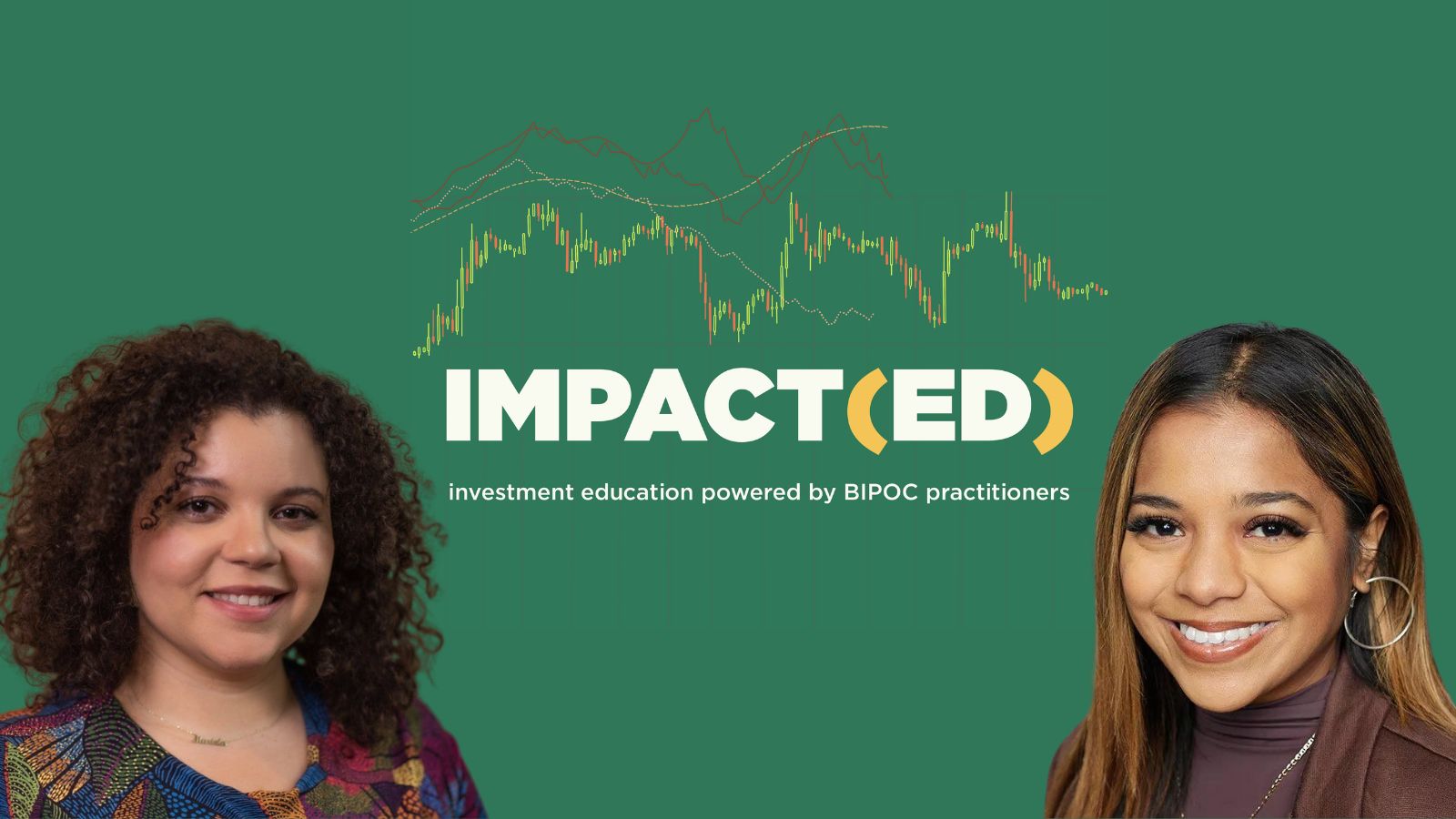ImpactAlpha, June 6 – Pro tip for entrepreneurs or fund managers getting ready to pitch Oakland-based Kapor Capital: Don’t leave diversity out of your slide deck.
“We will have founders or fund managers come pitch us and we say, ‘Wait a second. Where’s the impact? Where’s the diversity? Where’s the focus here?’” co-founder Freada Kapor Klein says on the latest Agents of Impact podcast on ImpactAlpha. “And they say, ‘Everyone told us to take it out of our decks.’”
That won’t fly at this venture capital firm. Since putting in place a “founders’ commitment” in 2016, “we have not written a check to a company, where the founder doesn’t commit to building a diverse team and an inclusive culture,” Kapor Klein says.
Last month, Kapor Klein and her husband, veteran tech entrepreneur Mitch Kapor, advanced their own commitment to diverse leadership when they announced they were stepping back from leadership of the firm. Stepping up are co-managing partners Brian Dixon and Ulili Onovakpuri, both of whom came up through Kapor’s internal talent development programs.
Talent development
The pair’s promotions had been signaled last year, when Dixon and Onovakpuri were named co-managing partners of Kapor Capital’s newest fund, targeted at $125 million, the first time the firm has raised outside capital. A February filing with the Securities and Exchange Commission indicated the firm already has raised at least $97.5 million. The firm has placed early bets on companies like BlocPower and Bitwise, which last year went on to raise big rounds.
“We’ve got the same same recipe, we’re keeping it the same. We’re supporting our founders, we’re doing investing our style,” says Dixon, who started as an intern at Kapor Capital in 2011. “We know that our style isn’t for everyone. But we think it’s generated top-quartile returns in the past and will continue to do so in the future.”
As examples, Dixon cited Tomo Credit, which helps first-time borrowers build credit scores. TomoCredit’s Kristy Kim developed the approach after she was repeatedly rejected for an auto loan. Another portfolio company, Numerade, offers low-cost, on-demand tutoring and has seen an explosion of demand through the pandemic. About those returns: In 2019, Kapor Capital’s Impact Fund released results that showed a 29% internal rate of return, beating the 75th percentile benchmarks for Pitchbook (25.96%) and Cambridge (26.5%) between 2011 and 2017.
Onovakpuri has an even longer history with the Kapors. At UC Berkeley, she was an IDEAL Scholar, a program the couple launched to support diversity at the university after California voters banned affirmative action with Proposition 209 in 1996. She later joined the Klein Kapor’s Level Playing Field Institute, now called SMASH.org, before moving to Kapor Capital as an analyst.
Last month, she led Kapor Capital’s investment in Philadelphia-based Cayaba Care, which provides maternity care, mental health counseling, breastfeeding support and patient education for low-income mothers and mothers of color. She said the investment illustrates two kinds of impact Kapor Capital is trying to drive with venture capital.
“One, it’s targeting a problem that is specifically faced by underrepresented groups more than other groups,” Onovakpuri says. And the company is “bringing together a diverse group of founders – two of the three founders are doctors of color. We like to see that two-pronged approach, where you have impact in the company, the mission of the company, and a diverse team being built.”
Countering the backlash
The Kapors say they are stepping back, not retiring. They are writing a book, due out next year, about the lessons of the first 10 years of Kapor Capital and its investment thesis, “because it was quite different, quite experimental, quite skeptically greeted at the time,” said Mitch Kapor, a veteran of the early days of personal computing, founder of Lotus Software and developer of the pioneering Lotus 1-2-3 spreadsheet. He was later a founder and chair of the Electronic Frontier Foundation.
“We’re very distinctive in being extremely hardcore in looking at the actual impact of the business as a business and who benefits,” Kapor says in the podcast. “While we’ve made some inroads on that, that is still not at all the way venture thinks.”
Indeed, issues of diversity and impact have become charged topics in Silicon Valley, with investors like Peter Thiel and Marc Andreessen, along with Elon Musk, denouncing ESG investing, which seeks to incorporate environmental, social and governance factors in investment decision-making.
“Folks are feeling threatened about where they would be if they hadn’t benefited from so much privilege of so many kinds,” Kapor Klein says. “Call it woke capitalism or whatever, but people are voting with their feet and with their pocketbooks. And we’re going to – we are already – through our portfolio companies changing the economy of what were formerly underestimated cities.”
“I actually think we need a new narrative,” she continued. “We should not be calling this impact investing and marginalizing it. We ought to be saying, ‘This is investing. And what they’re doing is greed-only investing.’ What they’re doing is limited, not what we’re doing.”
Catch up on all of ImpactAlpha’s podcasts, including the weekly Impact Briefing.










